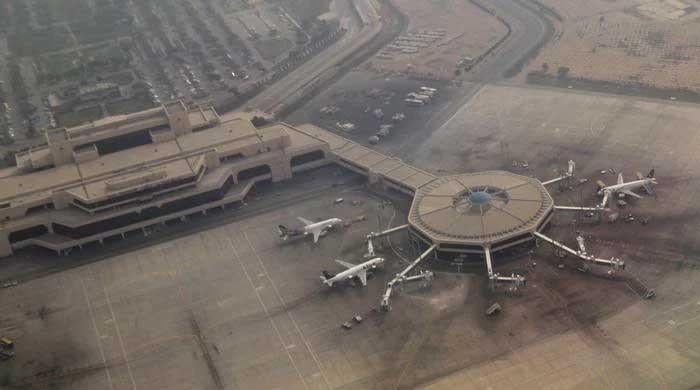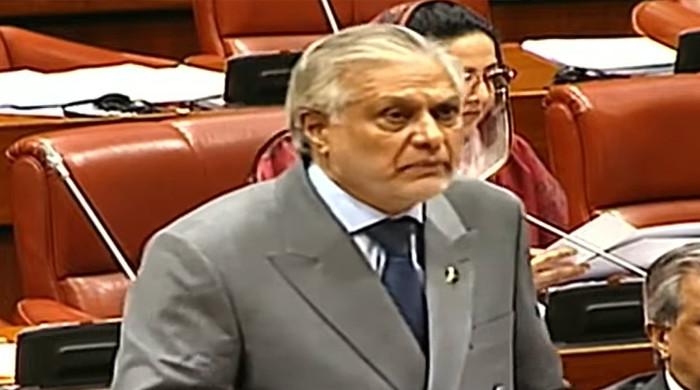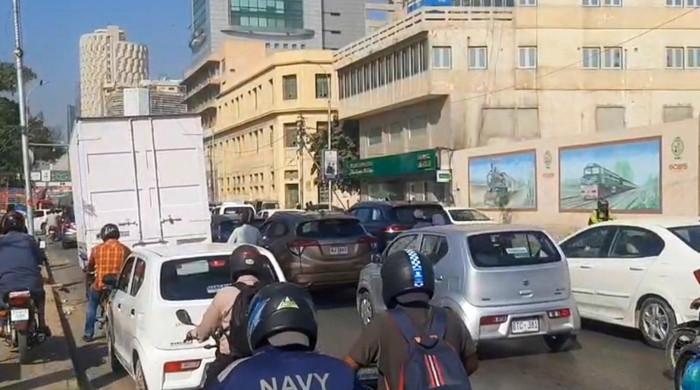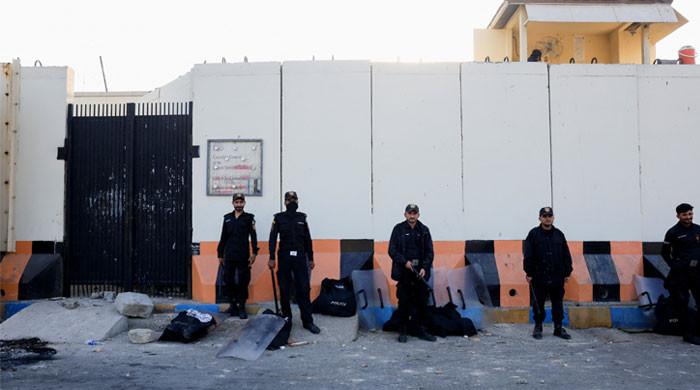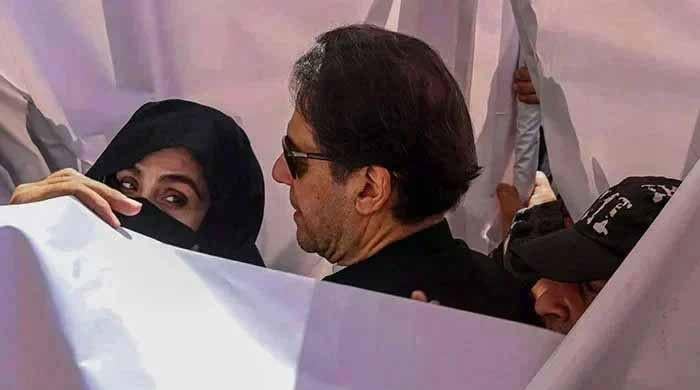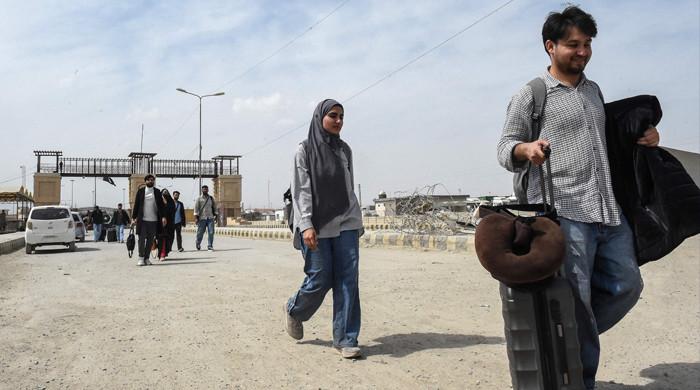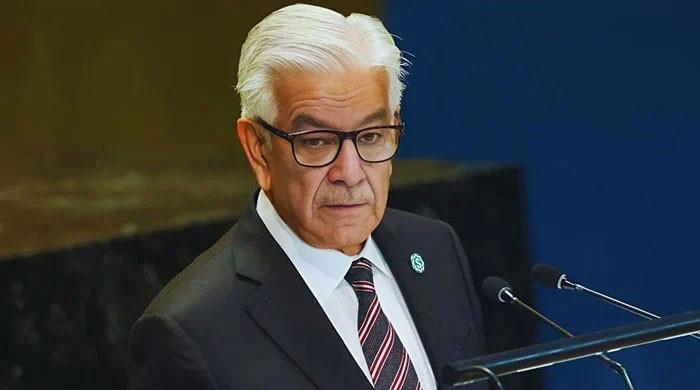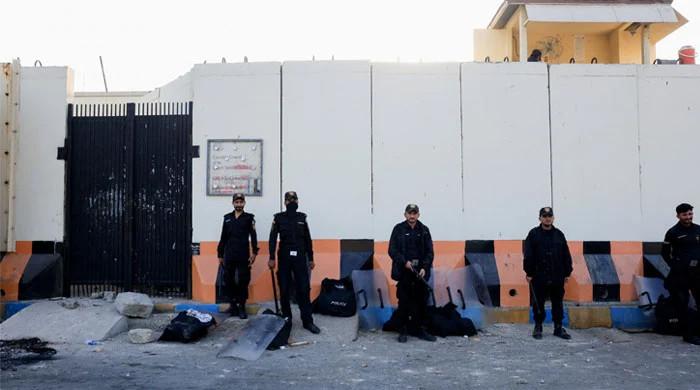Rupee devaluation raises BRT loan by Rs38 billion: report
KP government had received a loan of $593 million from ADB for BRT on 1.5% interest rate
February 20, 2020
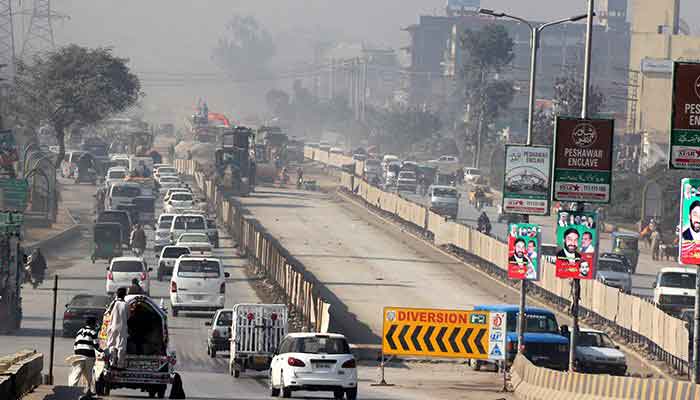
PESHAWAR: The devaluation of rupee has increased the loan burden of Peshawar Bus Rapid Transit (BRT) by Rs38 billion on Khyber Pakhtunkhwa with payable amount reaching Rs91.7 billion, reported The News.
The KP government had received a loan of $593 million from the Asian Development Bank for its flagship transport project on 1.5% interest rate payable in 25 years including five years of grace period. The provincial government had received an amount of Rs53.3 billion. However, after the devaluation of rupees against the dollar, the KP government has to pay back Rs91.7 billion which means an increase of Rs38.3 billion in loan.
Peshawar Development Authority (PDA) sources confirmed to The News that work on the BRT service was set to begin by April 15, 2020, while a trial run for the assessment of the project had already begun.
According to a financial expert, the project cost will reach Rs106 billion including ADB loan, interest and KP government share.
The KP government has claimed that BRT infrastructure cost is less than Lahore, Pindi and Multan Metros. The actual cost of BRT Corridor Peshawar is Rs38 billion which translates into 1.04 billion per kilometre.
Responding to PML-N President Shehbaz Sharif’s claims, KP Information Minister Shaukat Yousafzai said he would resign if the project’s cost proved to be even a rupee more than the Lahore Metro Bus project.
Peshawar’s BRT: A comedy of errors?
BRT project includes the cost of Rs10 billion on three mega shopping malls (bus depots), Rs7.4 billion on fleet procurement and Rs1.6 billion on land acquisitions. It also includes parking plaza and off corridor facilities of Rs320 million and old fleet scrapping Rs800 million.
“BRT is equipped with the third-generation facility and will cover the whole of the city while Lahore Metro was providing second-generation facilities, 35% increase in the cost was due to increase in the scope of work but not limited to the addition of 2.2 km of elevated BRT structure. We have to pay back the loan in 25 years with five years of grace period. Maybe we have to pay less if our currency becomes stronger in future,” Yousafzai said.
According to documents available with The News, the KP government had submitted PC-1 of ADP scheme No 130525 for the construction of Peshawar Mass Transit System prepared by ADB in March 2017. PC-I was vetted by project director Sajjad Khan and director PIU for Peshawar BRT Amin Khan. Same was approved by Azam Khan, former additional chief secretary now the personal secretary to the prime minister.
Later on, PC-I was approved by the CDWP and ECNEC having a total cost of Rs49.3 billion which includes ADB share of Rs41.8 billion and Rs7.4 billion of KP government.
Read also: Peshawar BRT engineer resigns over poor 'quality and quantity, corruption'
The project cost was increased in 2018 and revised PC-1 was approved by the PTI’s federal government. The total cost of the project was increased from Rs49.3 billion to Rs66.3 billion. ADB share increased from Rs41.8 billion to Rs53.3 billion. ADB loan was increased from $471 million to $593 million. KP government share was also increased from Rs7.4 billion to Rs13.1 billion.
The documents also revealed that BRT infrastructure, depots and ITS original cost was increased from Rs32.8 to Rs52.4 billion, which includes civil work of route Rs28 billion, improvement of existing roads Rs11 billion, Rs9.3 billion costs of depots and Rs4 billion of the intelligence ticketing system. Parking plaza and off corridor facilities cost increased from Rs95 to Rs320 million, bike-sharing scheme cost remained Rs132 million, ADB financing charges, supervision cost and advertisement from Rs493 to Rs1,156 million.
Fleet scrapping and environmental mitigation estimated cost increased from Rs1,068 million to Rs1,120 million. However, PIU implementation charges, trans Peshawar and Khyber Pakhtunkhwa Urban Mobility Authority (KPUMA) was decreased from Rs1,553 million to Rs800 million.
Meanwhile, utility relocation charges were also decreased from Rs1,680 million to Rs1,500 million, land acquisition and social resettlement was decreased from Rs2,213 to Rs1,620 million. Fleet procurement cost decreased from Rs7,875 million to Rs7,475 million. Contingencies requirement cost remained the same as Rs1,375 million.
Originally published in The News




